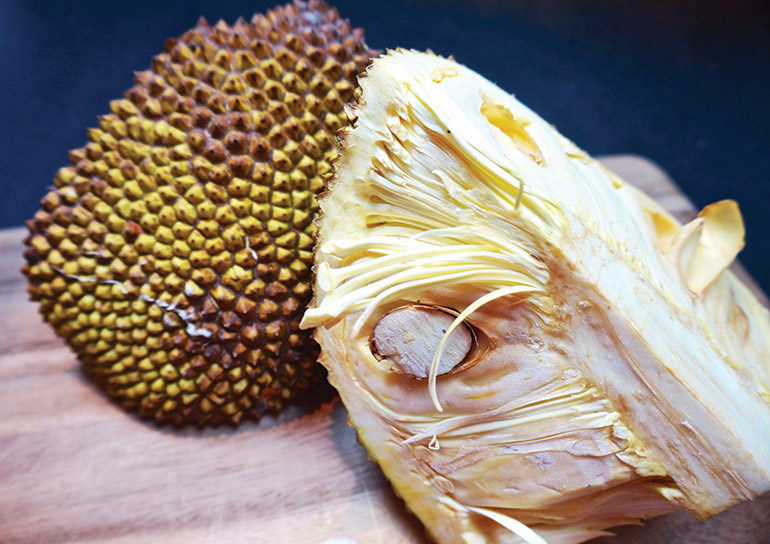Vegans the world over are falling for unripe jackfruit as an alternative to almost any meat product. But could it become an unhealthy obsession?

The Western world has woken up to the wonders of jackfruit. Picked before it ripens, chopped, canned and sent from plantations in Asia to an expanding market of buyers on the other side of the world, the fruit is making waves as a substitute for pork in pulled pork burgers, crab in crab cakes, tuna in tuna melts and bacon in BLTs.
The white flesh of a young jackfruit can be whatever you want it to be, it seems – even the answer to looming food security crises. Some scientists say its resistance to disease and droughts could make it an ideal replacement for staple crops such as corn and wheat that will suffer in a changing climate.
For Southeast Asia, recent global interest in jackfruit offers a welcome export opportunity, but variations on savoury mashed jackfruit, jackfruit curry and jackfruit stew have been around the region for centuries.
Penelope Williams, chef-owner of Bali Asli restaurant in Indonesia, noted that gudeg – unripe jackfruit boiled with coconut milk and spices – has long been a local favourite in Yogyakarta and spread into Singapore. “[Jackfruit] has been around a long time,” said the chef. “I love the idea of spreading jackfruit love globally.”
Most of Williams’ own jackfruit love has gone into traditional dishes, although she was particularly pleased with a pepper-crusted jackfruit steak in béarnaise sauce she fried up for a nearby hotel, and has enjoyed the results of fermenting jackfruit cider. However, as a champion of eating local, she’s also wary of spreading the jackfruit gospel with too much intensity.
“It’s good to open up people’s palates to sensations from around the world, but let’s not get carried away,” she said, adding that seeing jackfruit as a ‘miracle crop’ could lead people to clear the way for plantations that alter existing ecosystems. “Should people who don’t live in tropical climates even be eating it? This is an interesting question I think.”

